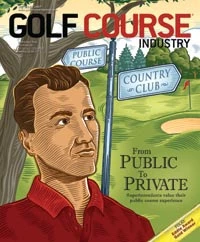Last year (September 2006), I received an unusually large number of positive responses to my review of several of my favorite management books. This year, I focus on the topic of building strong relationships with those you lead, supervise and coach. Of the four books I cite below, the first two have roots in the work of the Gallup Organization about what makes a great manager. The second two books build on the ideas discussed in the first two to enhance the ability to communicate more effectively.
“How Full is Your Bucket? Positive Strategies for Work and Life” – This book emerged from the author’s questioning of the prevalence in psychology of studying what’s wrong with people. The analogy used is a bucket and a dipper. Each of you has a bucket and can use the dipper to fill the bucket by filling others buckets or use the dipper to dip from others and diminish yourselves. The following points illustrate how remiss you can be filling your buckets:
- The No. 1 reason people leave their jobs is they don’t feel appreciated.
- 65 percent of Americans received no recognition in the workplace last year.
Potential to fill your bucket is illustrated by the following:
- Research suggests positive emotions are necessary for survival.
- Nine out of 10 people say they’re more productive when they’re around positive people.
- To be most productive, we need five positive interactions for every negative interaction.
Read the book to learn more about filling your bucket and five bucket-filling strategies.
“Vital Friends: The People You Can’t Afford to Live Without” – This well-researched but easy-to-read book revisits the subject of friendship, especially best friends. Perhaps the most important discovery about friendships – with spouses, friends, co-workers – is that all true friendships (vital friends) are focused on what each person is contributing to the relationship rather than expecting each person to be everything.
The most interesting part of the book addresses the controversial subject of friendship at work with an unexpected conclusion. Friendship at work is OK and nearly essential to being productive. The research reported supports the theory that those with a best friend at work are more productive, more engaged with customers, have fewer accidents and enjoy greater job satisfaction. A couple of concrete research results are:
- Without a best friend at work, the chance of being engaged in one’s job is one in 12.
- When asked to choose between having a best friend at work and a 10-percent raise, having the best friend won easily.
The value of a best friend at work even extends to being a friend with one’s boss.
“Getting to Yes: Negotiating Agreement without Giving In” – This is a classic about conflict resolution. Our traditional paradigm of negotiating focuses on winning and consequently is typically win-lose. The authors propose mutual-gains negotiation – a concept more recently referred to interest-based decision-making – with the goal of synthesizing for mutual gain rather than entering into win-lose competitiveness. The differences between traditional and mutual-gains negotiation are dramatic and have crucial implications for the outcome of a negotiation and, perhaps more importantly, for future negotiations between the parties. The authors present four strategies for mutual-gain outcomes:
1. Focus on interests not positions.
2. Separate the people issues from the contextual issues.
3. Invent options for mutual gain.
4. Insist on using objective criteria.
These strategies have been applied successfully to day-to-day interpersonal relationships, work relationships and even management (union negotiations).
“Managing to Have Fun” – This is a good follow-up to the aforementioned books. We often hear work isn’t supposed to be fun, that’s why it’s called work. The aforementioned books show that productivity and job satisfaction (including fun) go hand in hand. This book provides four principles for establishing a culture (in your case, within your golf course maintenance staff) that values celebration, appreciation and the human side of business. They’re followed by 52 ideas – one for each week of the year – to generate more fun on the job. The ideas range from simple to bizarre. GCI
Robert A. Milligan, Ph.D., is professor emeritus from Cornell University and senior consultant with Madison, Wis.-based Dairy Strategies. He can be reached at 651-647-0495 or rmilligan@trsmith.com.
Get curated news on YOUR industry.
Enter your email to receive our newsletters.
Explore the October 2007 Issue
Check out more from this issue and find your next story to read.
Latest from Golf Course Industry
- Advanced Turf Solutions’ Scott Lund expands role
- South Carolina’s Tidewater Golf Club completes renovation project
- SePRO to host webinar on plant growth regulators
- Turfco introduces riding applicator
- From the publisher’s pen: The golf guilt trip
- Bob Farren lands Carolinas GCSA highest honor
- Architect Brian Curley breaks ground on new First Tee venue
- Turfco unveils new fairway topdresser and material handler





